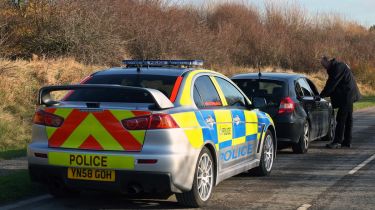Video uploads by ‘citizen police’ drive explosion in penalties for mobile phone use and other driving offences
Cameras and phone uploads are driving an increase in fines for phone use but penalties declined for offences requiring police ‘boots on the ground’

The latest figures issued by the Home Office reveal that the number of fixed penalties issued to speeding drivers has reached record levels, with more than 2.5 million drivers receiving a fine in the post or from a magistrate, or being sent on speed awareness courses.
However, the annual rise in speed-related offences is small compared to the increase in fixed penalty fines for using mobile phones at the wheel. Tougher laws were introduced in March 2021, and the number of penalties issued increased by a whopping 93 percent to more than 37,000. There were also large increases in numbers of drivers being penalised for neglect of traffic signs and of pedestrian rights, which were up by a third to 105,000.
Much of the increase in fixed penalty activity is associated with offences being committed on camera, whether that be roadside speed cameras or ‘citizen police’ uploading footage of alleged offences to websites such as Operation Snap.
In stark contrast, there was a decline in the number of penalties issued for many offences that would require the presence of a traffic police officer on the ground. The number of penalties for licence, insurance and record-keeping offences fell 8.1 per cent, penalties for HGV operator’s licence offences fell 15.4 per cent, penalties for vehicle condition offences fell by 6.4 per cent and penalties for obstruction and parking offences fell by 13.4 per cent.
The AA says that the rise of publicly submitted video footage with evidence of dangerous and poor road behaviours, means the chances of being caught in the act are rising.
“With the rise of dashcams and riders wearing cameras, drivers behaving badly should beware that someone is always watching. Police forces are utilising the footage to hold drivers to account and using the film as evidence to prosecute offenders,” says Jack Cousens, the organisation’s head of roads policy.
However, while the AA says cameras are a useful tool, it also warns of the dangers of over-reliance on such technology.
“The best way to deter illegal driving behaviours is to increase the number of traffic officers and visible presence on our roads,” Cousens says.
Want the latest car news in your inbox? Sign up to the free Auto Express email newsletter...
Find a car with the experts




